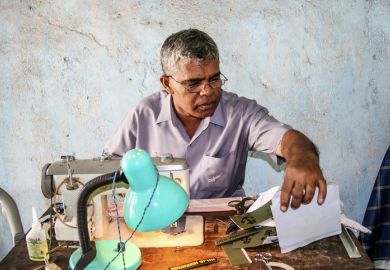Researchers have developed a mobile app which identifies students who are at risk of catching the flu by tracking who they interact with.
The information could be used by doctors to encourage undergraduates who are at risk of becoming ill to stay at home and avoid infecting other students, according to academics at three US universities.
The team from the University of Michigan, the University of North Carolina at Chapel Hill and Duke University carried out a pilot project in a bid to tackle the high flu rate among students, which is the result of close living quarters, low vaccination rates and busy social calendars.
For 10 weeks during the 2013 flu season, 103 Michigan students carried smartphones with built-in software that used wifi, Bluetooth and GPS technology to monitor where they went and who they came into contact with.
The undergraduates also recorded their symptoms each week online, and participants who reported flu symptoms were given throat swabs to determine whether they had the virus.
The model then calculated odds that each student would spread or contract flu on a given day, and identified health habits – such as handwashing or vaccination – that might help them avoid this, or hasten their recovery.
Unsurprisingly, when a student became sick, his or her friends were more likely to become sick also.
In a paper presented at the 21st International Conference on Knowledge Discovery and Data Mining in Sydney on 12 August, the researchers also state that students who smoke or drank took longer to recover.
Katherine Heller, an assistant professor in statistical science, said smartphones and wearable fitness devices enabled a “continuous logbook” of an individual’s health to be created.
“We want to leverage that data to predict what people’s individual risk factors are, and give them advice to help them reduce their chances of getting sick,” she said.
Register to continue
Why register?
- Registration is free and only takes a moment
- Once registered, you can read 3 articles a month
- Sign up for our newsletter
Subscribe
Or subscribe for unlimited access to:
- Unlimited access to news, views, insights & reviews
- Digital editions
- Digital access to THE’s university and college rankings analysis
Already registered or a current subscriber? Login




